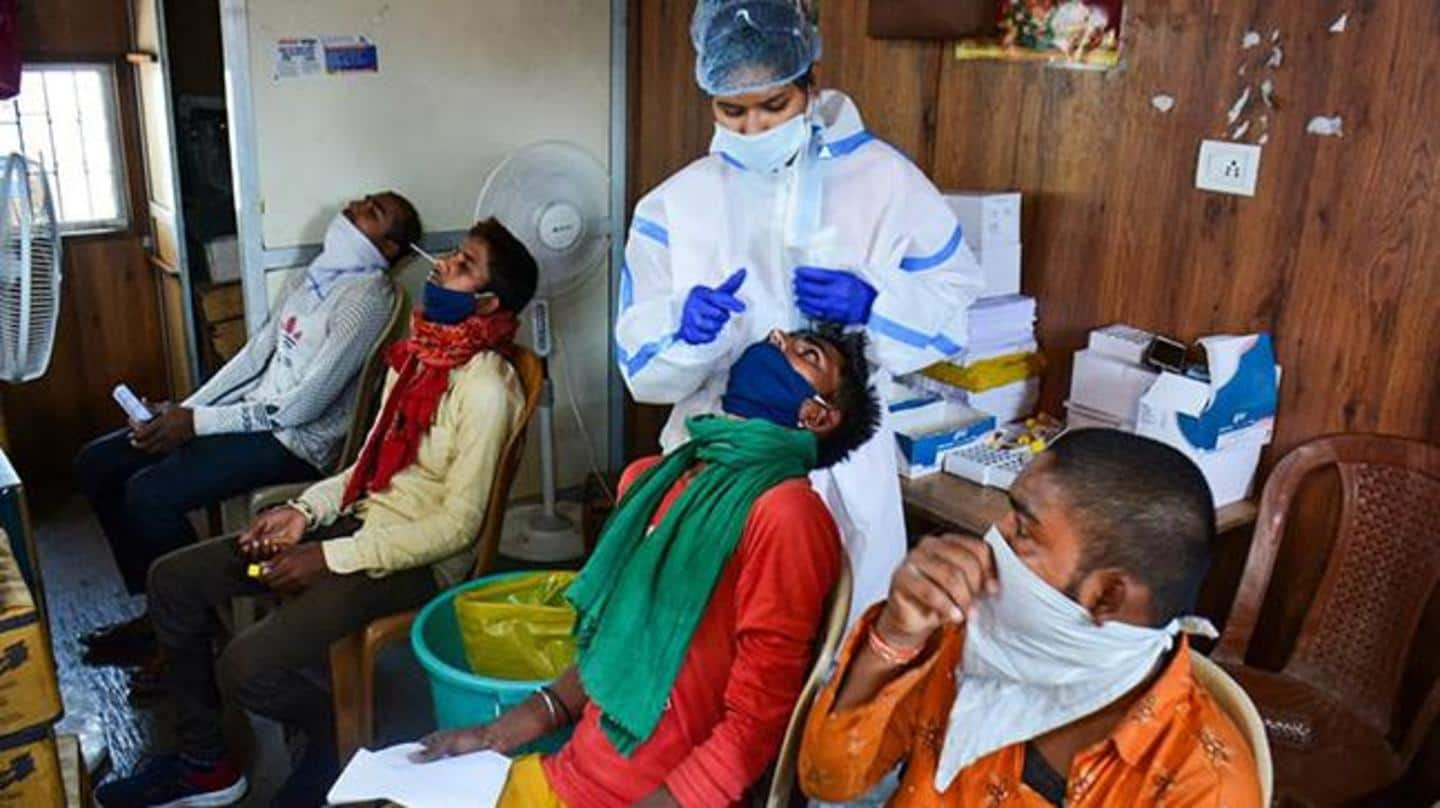
Coronavirus: India reports biggest surge in infections in 2 months
What's the story
India on Sunday reported over 18,700 fresh coronavirus infections, marking a 59-day high.
For the second day in a row, Maharashtra, India's worst-hit state, reported over 10,000 fresh infections.
Infections in India have been rising steadily over the past several weeks since hitting a low of under 9,000 single-day cases in early February.
Here are more details.
Statistics
1.12 crore infected in India; 97% recovered
According to the Health Ministry, till 8 am on Sunday, India reported a total of 1,12,10,799 COVID-19 cases. India has reported the second-highest number of infections for any country.
Since the beginning of the pandemic, 1,08,68,520 people have recovered, and only 1,84,523 cases involve active infections.
The death toll has reached 1,57,756.
On Sunday, the Ministry reported 18,711 new infections and 100 more deaths.
States
Maharashtra reports 10,187 new cases
Maharashtra reported 10,187 new cases, a day after witnessing 10,216 fresh infections. The state's Pune district alone recorded 1,925 cases, followed by Nagpur (1,217) and Mumbai (1,188). The state also recorded 47 fatalities.
Meanwhile, Kerala reported 2,791 new cases.
Infections have also started rising in Punjab, which recorded over 1,000 new cases for the second time in three days.
States
Haryana, Chandigarh, Karnataka also see rise in infections
Infections have also started rising in Haryana, which reported its highest tally of 323 since December 30.
In Chandigarh, single-day infections rose to 122, the highest since December 1.
Karnataka reported 580 new cases and five more fatalities on Saturday.
Among other states, Tamil Nadu reported 562 new infections, Gujarat 571, Madhya Pradesh 467, Delhi 321, Rajasthan 233, and West Bengal 259.
Vaccination
2.09 crore vaccinated in India
Till Sunday morning, 2,09,22,344 people were vaccinated in India.
India had launched its vaccination drive on January 16, using two vaccines: Serum Institute of India's Covishield and Bharat Biotech's COVAXIN.
In the first phase, the drive focused on health/frontline workers.
In the second phase—launched on March 1—people above the age of 60 and people aged over 45 with co-morbidities are allowed to be vaccinated.